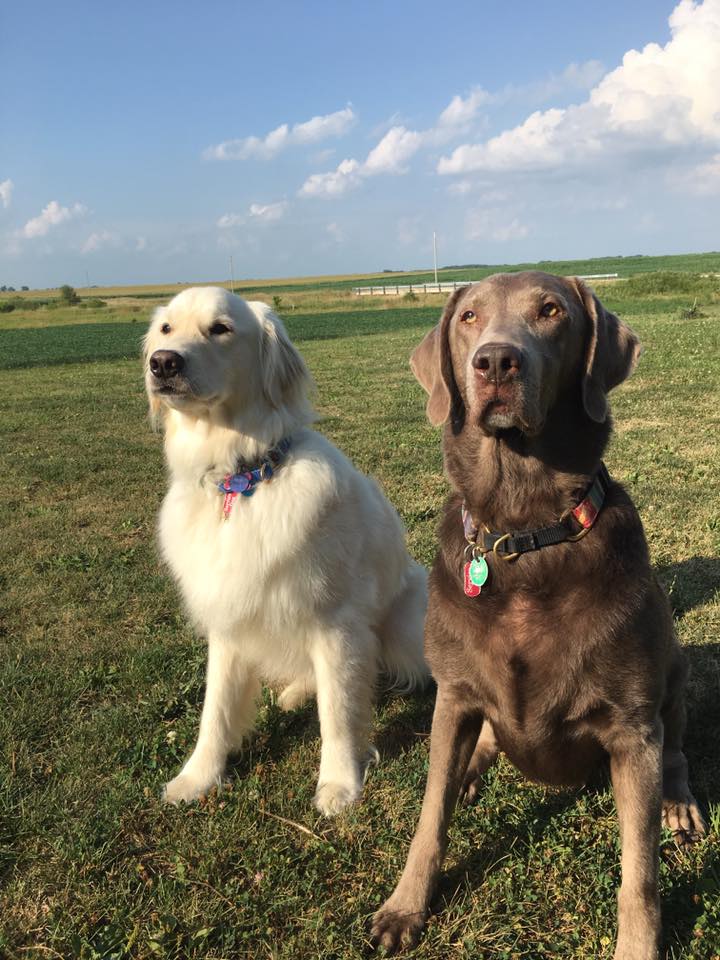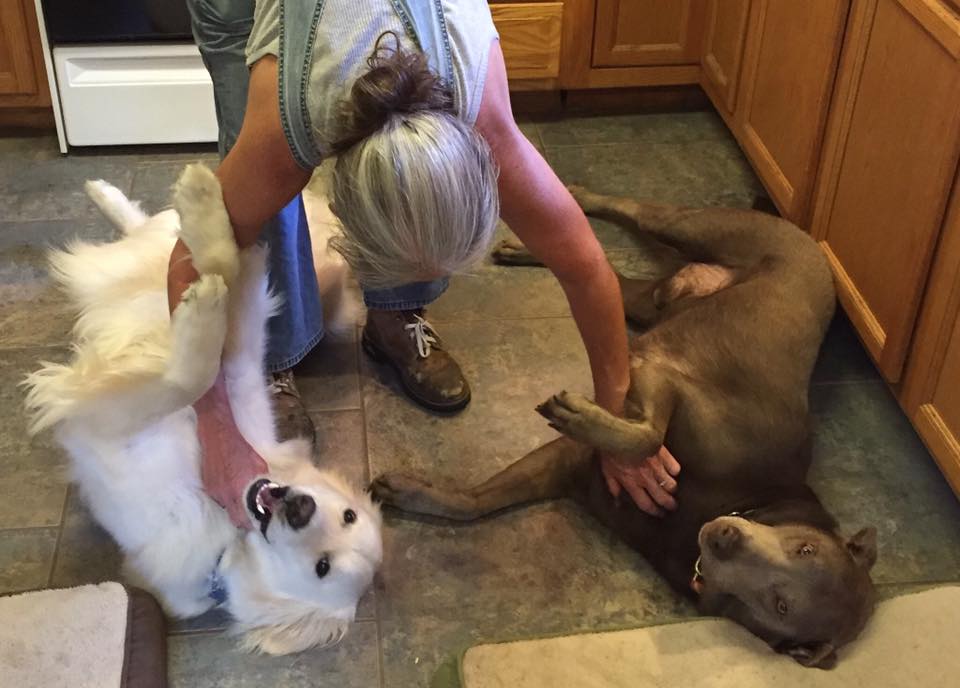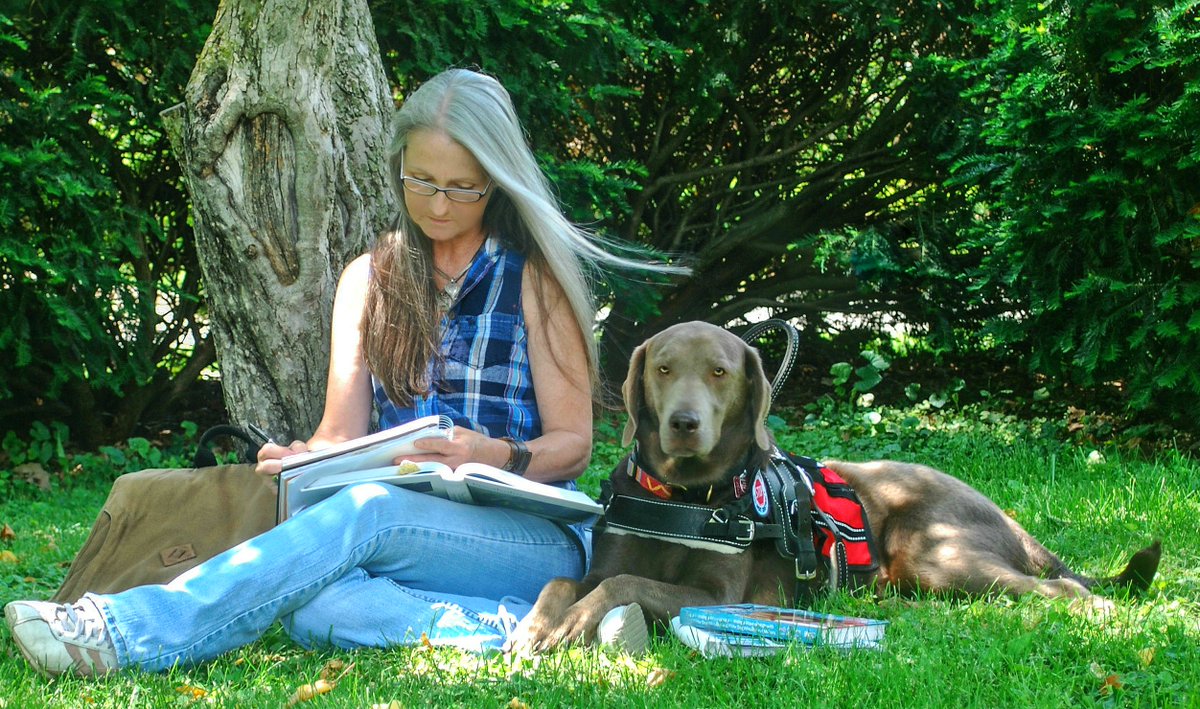Thread: Retiring a Service dog. Yesterday I played w/ my retired service dog brother Theo. Ppl ask Mom all the time about retiring an SD. Every handler is faced w/ that decision at some point. I am not retiring for a while but one day I will too, just like Theo. #Dog #retire
Theo started in school w/ Mom first and worked in a Lab with her first. When he retired I took over for him. He lives next door w/ a neighbor and we see him every day. He is older, happy, and living the best retired life on the farm just sleeping, and playing fetch.
Retiring an SD partner is never an easy decision. Something starts to nibble at a handler& #39;s mind. Their partner misses cues, is slowing down, their sleep needs & recovery time after a long day increases, or chronic health issues begin to develop…..perhaps arthritis or cataracts.
It is the handler& #39;s responsibility to watch for and respect these signs and not make excuses. SDs are stoic and they want to work, they are driven to be the best they can be for you, so they can’t and won’t tell you. They just keep on working b/c they love their job.
Bring this topic up to a handler and they groan, look suddenly ill, and then the topic is changed. The relationship, connection, and bond is indescribable. There is no way around the sadness that comes with retiring your partner.
A person in need of a service dog will likely have several service dog partners in their lifetime. Training can take 2-years and around 10-12 years old is about retirement age for a healthy dog. Retirement can be stressful & psychologically tasking to an SD.
So how does this transition take place: 1. If the SD partner came from an organization the handler most likely kept in touch. Notify them soon so they can start searching for a good replacement dog. If you train your own, then start early!
2. It is best to phase your dog out slowly, gradually reduce responsibilities and public trips. If the SD partner stays in the home introduce a new SD slowly with respect to your retiring partner.
3. If your dog is still able, take them out on small excursions and leave the longer, more tasking outings to the new partner. It is a sad fact that some people cannot have two dogs in the same household. You have to think about living arrangements & your lifestyle.
You also have to think about the happiness of both SDs and if the new SD can perform the tasks they need to assist if the retiring SD stays in the house. Sometimes finding a close relative or friend where the retiring dog can live is the best case.
If the SD came from an org. oftentimes they can assist in finding a good retirement home for the retiring SD where the handler can remain in touch and visit. It is the handler& #39;s responsibility to ALWAYS do what is best FOR their partner. A handler takes this very seriously.
There is nothing easy about making this decision, and any handler will shed many tears and will go through the grieving stages. Learning about a new SD partner& #39;s quirks and learning how to work together also takes time. Also, if an SD came from an org. they also have to adjust.
The love and respect between a handler & an SD truly can not be described in words, but you see it in action. You see the trust they put in each other, you see the looks they give each other, and the communication is oftentimes silent. it is just an understanding between partners
But the day an SD has to retire will inevitably happen in every working team& #39;s lives together. But knowing this, and knowing how to make it the best and easiest transition for all is a good start.
But please, refrain from asking a handler when or what they will do when their SD has to retire. It is one handler& #39;s don& #39;t want to discuss or think about and does make them very sad. They will know when the time is right and will do right by us. We trust them.  https://abs.twimg.com/emoji/v2/... draggable="false" alt="❤️" title="Rotes Herz" aria-label="Emoji: Rotes Herz">
https://abs.twimg.com/emoji/v2/... draggable="false" alt="❤️" title="Rotes Herz" aria-label="Emoji: Rotes Herz"> https://abs.twimg.com/emoji/v2/... draggable="false" alt="🐕🦺" title="Assistenzhund" aria-label="Emoji: Assistenzhund">
https://abs.twimg.com/emoji/v2/... draggable="false" alt="🐕🦺" title="Assistenzhund" aria-label="Emoji: Assistenzhund">

 Read on Twitter
Read on Twitter





